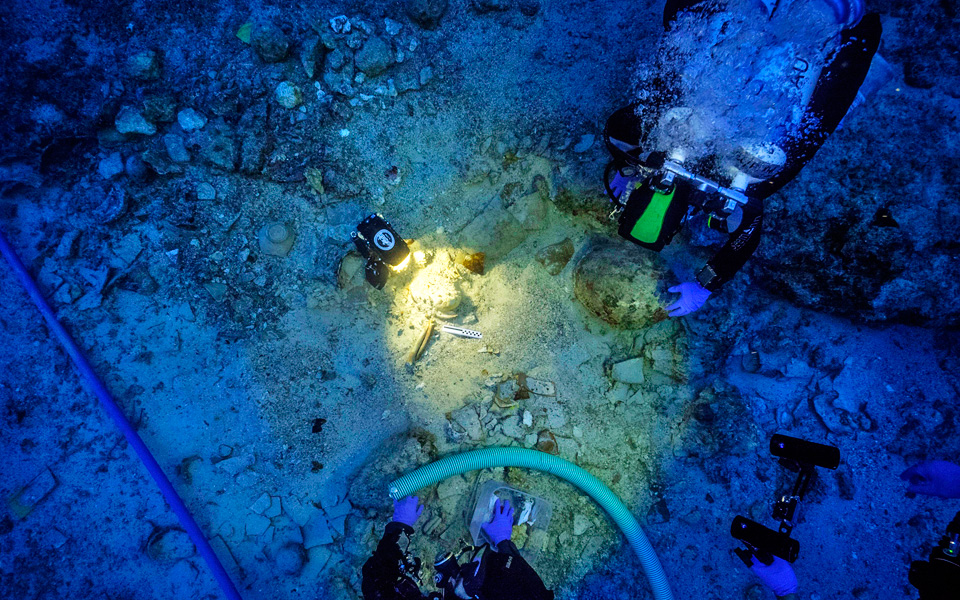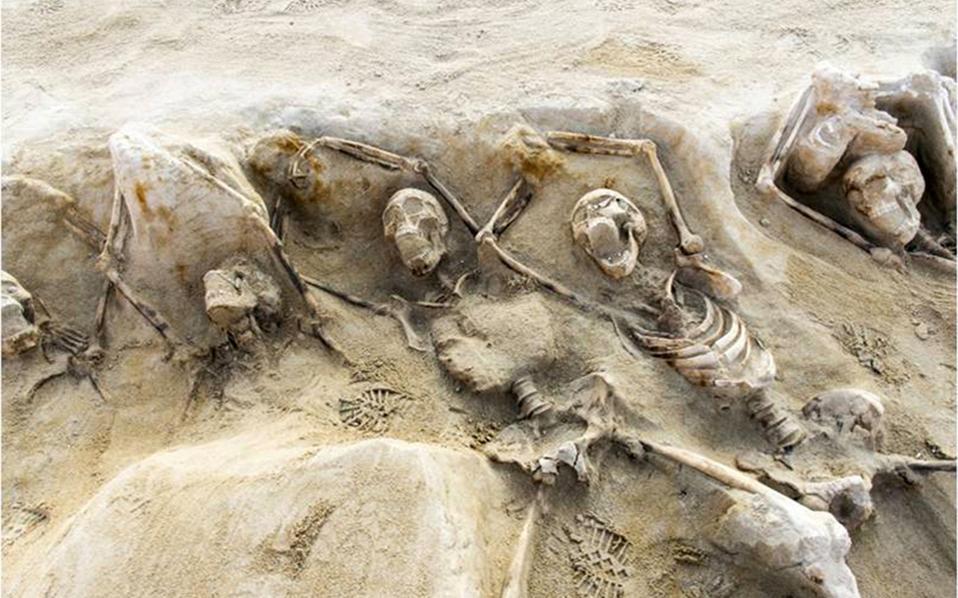Two archaeological findings in Greece – namely the so-called Antikythera Man and a mass grave at the Phaleron (present-day Faliro) Delta, south of Athens – have been included in the “Top 10 Discoveries of 2016” by Archaeology magazine. The publication is issued by the Archaeological Institute of America.
Excavators at the Phaleron Delta necropolis – a large ancient cemetery unearthed during the construction of a national opera house and library – earlier this year found at least 80 skeletons lying in a mass grave, their wrists clamped by iron shackles. Classical archaeology has called on the help of CSI-style archaeologists from the Malcolm H. Wiener Laboratory for Archaeological Science at the American School of Classical Studies in Athens (ASCSA) to examine the graves.
“For the first time we can illustrate historical events that took place during the struggle between aristocrats in the seventh century and led, through a long process, to the establishment of a democratic regime in the city of Athens,” project director Stella Chrysoulaki told Archaeology magazine.

Meanwhile, an key discovery was made this summer at the site of the world-famous Antikythera shipwreck as an international team recovered a human skeleton. “The newly discovered remains are the first to be uncovered in almost 40 years – and during the age of DNA analysis,” the magazine said.
Discovered by sponge divers in 1900 off the Greek island of Antikythera, the site has yielded hundreds of treasures, including bronze and marble statues, as well as the Antikythera Mechanism, often referred to as the world’s oldest computer.
Other feats in the top 10 list include the precise dating of the world’s oldest woven garment found in Tarkhan, Egypt, the discovery of more than 400 Roman waxed writing tablets during excavations in London, and the use of airborne laser-scanning technology by scientists in northwestern Cambodia to survey 900 square miles of the densely forested Angkor region, revealing centuries-old cities that once belonged to the vast Khmer Empire.











